 手足胼骶
手足胼骶外研社版二年级英语下册 - 一年级起点单词列表、例句汇总
外研社版二年级英语下册 - 一年级起点单词列表、例句汇总外研社版二年级英语下册 - 一年级起点单词列表、例句汇总共包含10个学习单元,111个单词。Mole 1(12个单词)爸爸,今天天气怎么样?·weather英 [we(r)] / n.天气What''s the weather like today,Dad?(爸爸,今天天气怎么样?)·like英 [lak] / conj.像,如同These two girls like to sing.(这两个女孩喜欢唱歌。)·What''s the weather like?英 / 天气怎么样?What''s the weather like? It''s snowing.(天气怎么样?下雪了。)·sunny英 [sni] / adj.阳光充足的,阳光明媚的I love sunny.(我喜欢晴天。)·windy英 [wndi] / adj.有风的,刮风的It''s windy.(天气有风。)·take英 [tek] / vi.带,拿Mark often took his books to Bess''s house to study.(马克常常带着书本去贝丝家学习。)·cap英 [kp] / n.(有帽檐的)帽子Police wear a blue cap when on ty.(警察在执勤的时候戴着蓝帽子。)·sofa英 [sf] / n.沙发Your sofa is so nice!(你的沙发真漂亮!)·street英 [stri:t] / n.街道There are no people on the street at night.(到了晚上,街上就空无一人。)·rain英 [ren] / n.下雨;雨It is going to rain.(要下雨了。)·snow英 [sn] / vt.下雪After the snow it is really cold.(下过这场雪,就觉出冷来了。)·*ski英 [ski:] / n.滑雪I want to go to ski.(我想去滑雪。)Mole 2(11个单词)这个收音机样子很别致。·radio英 [redi] / n.收音机;电台节目This radio set is unconventionally shaped.(这个收音机样子很别致。)·photo英 [ft] / n.照片We must take a photo!(我们一定要拍张照片!)·newspaper英 [nju:zpep(r)] / n.报纸This quotation is taken from a newspaper article.(这段引文是从报上抄录来的。)·little英 [ltl] / adj.年幼的,幼小的You''ve had chess on the brain since you were little.(你从很小的时候就对下棋产生了浓厚兴趣。)·camera英 [kmr] / n.照相机This camera is too dear.(这架照相机太贵了。)·smile英 [smal] / n.微笑She had a big smile on her face.(她笑容满面。)·draw英 [dr:] / vt.& vi.绘画,画Draw an outline before you fill in the details.(先画个轮廓,再画细部。)·picture英 [pkt(r)] / n.图画;照片The sunset glow is just like a picture.(晚霞恰如一幅图画。)·write英 [rat] / vt.& vi.写There''s no time for me to write a letter to him.(我来不及写信给他了。)·letter英 [let(r)] / n.信I have received your letter.(我收到了你的信。)·colour英 [kl(r)] / n.给……着色The colour is not evenly spread.(颜色涂得不匀。)Mole 3(10个单词)房间收拾得很整洁。·tidy英 [tadi] / vt.& vi.整理,收拾The room is kept clean and tidy.(房间收拾得很整洁。)·room英 [ru:m] / n.房间The living room looked warm and welcoming.(客厅看起来温暖舒适。)·do英 [] / vt.做;干She can do a lot of hard work.(是的,我喜欢。)·homework英 [hmw:k] / n.家庭作业It was late at night and he was still working away at his homework.(夜深了,他还在做课外作业。)·sleep英 [sli:p] / vi.睡觉Try and get some sleep.(试着睡一会儿。)·secret英 [si:krt] / n.秘密I''m going to let you in on a little secret.(我要向你透露一个小秘密。)·card英 [kɑ:d] / n.贺卡Here is a card for you.(这是给你的一张卡片。)·flower英 [fla(r)] / n.花I like flowers.(我喜欢花。)·science英 [sans] / n.科学Science has greatly improved human life.(科学已经极大的改善了人类的生活。)·today英 [tde] / n.今天What day is it today?(今天星期几?)Mole 4(10个单词)我打电话给美国的一个朋友。·call英 [k:l] / v.打电话,通话I made a phone call to the United States to talk to a friend.(我打电话给美国的一个朋友。)·noise英 [nz] / n.声音,响声There was a great noise over there.(那边嘈杂极了。)·drink英 [drk] / vt.& vi.喝,饮Children should not drink fruit juices straight.(儿童不应该喝纯果汁。)·talk英 [t:k] / v.说话,交谈The child is learning to talk.(孩子正在学说话。)·stone英 [stn] / n.石子,石头That house is built of stone.(那所房子是石头造的。)·*five-stones英 / (抛接五块小石的)五子游戏The five-stonesis currently drawing huge crowds.(五子游戏现在吸引了很多人。)·behind英 [bhand] / adv.在……后面Bad people should be standing behind here.(坏人应该站在这后面。)·hide英 [had] / vt.躲藏We must hide away.(我们得躲藏。)·*seek英 [si:k] / vt.寻找I have been to seek a friend.(我在寻找一个朋友。)·*hide-and-seek英 [had n si:k] / n.捉迷藏A favorite children''s game is hide-and-seek.(孩子们喜欢的一个游戏是捉迷藏。)Mole 5(13个单词)我们站在那里看他们跳绳。·*skip英 [skp] / vi.跳绳We were standing watching them skip rope.(我们站在那里看他们跳绳。)·hurry up英 [hri p] / 赶快Hurry up! The film has begun.(快一点!电影已经开始了。)·late英 [let] / adj.晚的,迟的We went to bed very late.(我们很晚才睡。)·sad英 [sd] / adj.伤心的,难过的You look sad in this picture.(这张照片你看起来很难过。)·no英 [n] / adj.没有No,I don''t.(不,我没有。)·those英 [z] / adj.那些Is the boy playing with those birds?(小男孩正在和小鸟们玩吗?)·*clap英 [klp] / vt.& vi.拍手I often clap my hands in joy.(我常在高兴时拍手。)·game英 [gem] / n.游戏The game is currently drawing huge crowds.(这个游戏现在吸引了很多人。)·clapping game英 / *拍手游戏The children are clapping game in the garden.(孩子们在花园里玩拍手游戏。)·well英 [wel] / adv.噢,喔,好She is not a well woman.(她不是一个健康的女人。)·kid英 [kd] / n.小孩The little kid likes to play in the park.(这个小孩喜欢在公园里玩耍。)·catch英 [kt] / n.抓,捉;追人游戏The cat is happy to catch the mouse.(抓到了杰瑞,汤姆很开心。)·of course英 [v k(r)s] / 当然It was, of course, within my right to do so.(我当然有权利这样做。)Mole 6(9个单词)他经常通宵工作。·usually英 [ju:uli] / adv.通常地He usually works all through the night.(他经常通宵工作。)·us英 [s] / pron.(宾格)我们It''s time for us to go.(我们该走了。)·ride英 [rad] / vt.& vi.骑Teach me how to ride a bicycle.(请你教我怎样骑自行车。)·thing英 [θ] / n.事情,活动These are different things that people need in daily life.(这些都是日常生活中人们需要的东西。)·ill英 [l] / adj.有病的She is ill and is taken care of by the doctor.(她生病了,医生在照看她。)·cook英 [kk] / vt.& vi.做(饭),烧(菜)I want to be a cook.(我想成为一名厨师。)·her英 [h(r)] / pron.(宾格)她I''ll ask her what she''s looking at.(我会问问她,她正在看什么。)·go shopping英 [ɡu p] / 去购物I live just by the market, and it''s very convenient to go shopping.(我家就住在商场旁边,买东西很方便。)·kitchen英 [ktn] / n.厨房She started cleaning the kitchen.(她开始打扫厨房。)Mole 7(10个单词)今天是儿童节。·Children''s Day英 / n.儿童节It''s Children''s Day. (今天是儿童节。)·TV英 [ti: vi:] / abbr.电视台They are already familiar faces on our TV screens.(他们已经是我们电视屏幕上的熟面孔了。)·play英 [ple] / n.(戏剧)演出Can you play football?(你会踢足球吗?)·say英 [se] / vi.念,朗诵Why do you have to say it so loudly?(你为啥要说这么大声?)·poem英 [pm] / n.诗This poem is written by Du Fu.(这首诗是杜甫写的。)·*dragon英 [drgn] / n.龙The dragon really flies.(龙真的飞走了。)·*dragon dance英 [drɡn dɑ:ns] / 舞龙Playing dragon, also known as the dragon dance or dragon dance.(耍龙灯,也称舞龙灯或龙舞。)·picnic英 [pknk] / n.野餐I took the kids for a picnic in the park after school.(放学后我带孩子们去公园野餐。)·family英 [fmli] / n.家,家庭To him the family is the core of society.(对他来说,家庭是社会的核心。)·beach英 [bi:t] / n.海滩The waves splashed on the beach.(波浪飞溅到海滩上。)Mole 8(13个单词)这山很难爬。·hill英 [hl] / n.小山This hill is hard to climb.(这山很难爬。)·past英 [pɑ:st] / adv.经过Now it is different from the past.(现在和过去不同了。)·station英 [sten] / n.车站The train arrived at the station on time.(列车准时到达了车站。)·hospital英 [hsptl] / n.医院I''m going to the hospital.(我要去医院。)·stop英 [stp] / vi.停止The road worker held up his hand to stop the car.(修路工人举手让车停下来。)·turn英 [t:n] / vt.& vi.转向,转弯The sign is telling us to turn right.(这个标志表示车辆在路口可以右转。)·around英 [rand] / adv.到另一面,转向You can fly around the world.(你可以绕着世界飞一圈。)·turn around英 / 转身,回转I turn around and all these cops are outside.(我一转身看到那些警察在外面。)·ground英 [grand] / n.地面The ground has thawed.(地面解冻了。)·again英 [gen] / adv.又一次,再一次This is never to happen again.(再也不会发生这样的事了。)·jump英 [dmp] / vi.跳跃Whoever heard of a basketball player who doesn''t need to jump?(有谁听说过篮球运动员不需要跳跃的吗?)·back英 [bk] / n.回到,返回The privy''s out the back.(厕所在房子后面。)·come back英 [km bk] / 回来He has just come back.(他刚刚回来。)Mole 9(11个单词)在英国,汽车靠左行驶。·left英 [left] / adj.向左;左边的In Britain cars drive on the left.(在英国,汽车靠左行驶。)·turn left英 [t:n left] / v.向左转Go straight and turn left at the first crossroads.(一直往前走,在第一个十字路口向左转。)·right英 [rat] / adv.向右;右边的You can use green marks under right answers.(你可以在正确答案下面用绿色标记。)·turn right英 [t:n rait] / v.向右转Go straight and turn right at the first crossroads.(一直往前走,在第一个十字路口向右转。)·road英 [rd] / n.公路,道路Heavy traffic blocked the road.(拥挤的车辆阻塞了道路。)·excuse me英 [ikskju:z mi:] / int.劳驾,对不起Excuse me. You''re sitting in my seat.(对不起,你坐了我的座位。)·straight英 [stret] / adv.直地,直线地That road is very straight.(这条路很直。)·go straight on英 [ɡu streit n] / 直着走When you come to the crossing, go straight on.(当你来到十字路口时,继续往前走。)·lost英 [lst] / adj.迷路的Where are we?I think we might be lost.(我们在哪里?我想我们好像迷路了。)·out英 [at] / adv.出,向外He went on staring out of the window.(他继续凝视着窗外。)·factory英 [fktri] / n.工厂This factory manufactures shoes.(这家工厂制造鞋子。)Mole 10(12个单词)加拿大与美国接壤。·next to英 [nekst tu:] / prep.接近,靠近Canada is next to the United States.(加拿大与美国接壤。)·cousin英 [kzn] / n.堂(表)兄(弟姐妹)I always play with my little cousin.(我总是跟我的小表妹玩。)·supermarket英 [su:pmɑ:kt] / n.超市We''re going to the supermarket!(我们要去超市!)·wrong英 [r] / adj.不正确的Something is wrong with my bike.(我的自行车有毛病了。)·way英 [we] / n.道路,路线It was very difficult to see our way because of the fog.(由于有雾,我们很难看清道路。)·turn back英 [t:n bk] / 往回走Turn back or something else?(往回走,再想别的办法吗?)·front英 [frnt] / n.前面There are three pillars at the front of the shop house.(房子的前面有三个柱子。)·in front of英 [in frnt v] / 在…的前面We dried our clothes in front of the fire.(我们在火前烘干了衣服。)·well英 [wel] / adj.完全地,充分地She is not a well woman.(她不是一个健康的女人。)·taxi英 [tksi] / n.出租车,计程车I hurried away to hail a taxi.(我赶紧去叫出租车。)·Mrs英 [''msz] / n.太太,夫人Mrs Cavendish is a dear friend of mine.(卡文迪什夫人是我的一位亲密朋友。)·cinema英 [snm] / n.电影院The cinema is always filled to capacity.(电影院经常客满。)外研社版 - 二年级英语下册(一年级起点)》由[小孩子点读]APP独家原创整理并发布,未经授权不得转载。小孩子单词天天练提供标准的发音,详实的释义,贴切的例句,助力大家学好英语。
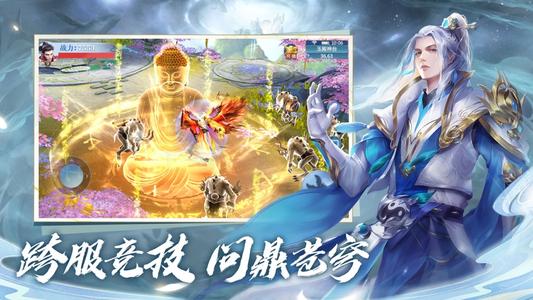 故曰
故曰二年级下册英语课课练试题汇总(外研版)适合打印出来给孩子练习
二年级下册英语课课练试题汇总(外研版)适合打印出来给孩子练习为了让同学们学好英语,现在很多地方都是从幼儿园开始接触和学习英语,毕竟在如今教育体系中,英语已成为当代学生学习教育中不可或缺的主题,不管是平常的期中期末考试,还是像小升初、中考等升学考试中,英语是一门及其重要的学科,分值特别大。然而,现在常见的现象是许多学生对英语学习不感兴趣,因此他们的英语成绩很低。作为一个复杂的语言系统,其词汇、语法等可能变得难以让学生学习。因此,许多学生认为学习英语并不容易,甚至是一种苦难。从长远来看,学生将失去学习英语的动力。因此,帮助孩子们树立正确的英语学习观点和思想,是我们一二年级学生家长的当务之急,才可能获得一个较好的成就。小学二年级英语所学知识并不难,正是培养和提升孩子英语学习兴趣的关键时期,当然了,一些必要的英语练习还是应该要进行的,下附二年级下册英语课课练试题汇总资料,是一份专门针对使用外研社教材的二年级学生练习的试题资料,家长们可以为自家孩子打印一份。下附二年级下册英语课课练试题汇总(外研版)(文末有word版打印方式)文中的二年级下册英语课课练试题汇总(外研版)资料“完整版”如何获取呢?首先,关注我,点击头像进入“学而思小课堂”的主页面。然后,看到右上角的“私信”键,点击发送“123”即可!以上是文章的全部内容,建议同学们打印下来好好复习。现在同学们正在家里学习,正好可以拿去练习做一下,我相信这份资料对于同学的学习一定还会有非常大的帮助。
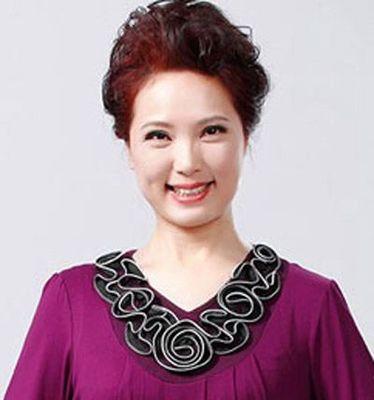 目标战
目标战二年级下册英语试题:1~5单元课课练,外研版,有需要的收藏起来
英语成为了日常交流与经济活动中重要语言之一,再加上最近几年我国经济发展水平的不断提高以及新课程标准的出台,英语已经不再简单地是一种语言交流工具,更是体现出人们综合素质的集中体现。在我国英语教学体系中,小学英语是其中十分重要的构成部分。小学英语的学习主要目的不不是为了让学生学好多内容,而是为了能够让学生们在课堂中掌握一些基础知识,并形成英语学习思维。所以,在这样的背景下,小学英语教师必须要将重点放在夯实学生基础上。在开展教学过程中,要将课本作为重要基础,进而进行教学设计。 而不同的教材需要学习的内容也有区别,比如外研版和人教版、部编版、苏教版等,都是有区别的。为了帮助大家更好的学习英语,我给大家准备了一份二年级下册的英语试题,包含1~5单元的课课练,是外研版的,之前一直有人在问我有没有外研版的资料,希望这份小学英语资料你能够好好拿去利用起来,希望能对你孩子学习英语有帮助。鉴于文章篇幅有限,只能看到前半部分,文末有“完整版”获取方式!二年级下册英语试题:1~5单元课课练文中资料“完整版”如何获取呢?首先,关注我,点击头像进入“学海知识库”的主页面。然后,看到右上角的“私信”键,点击发送“222”即可!以上是文章的全部内容建议同学们打印下来好好复习。正好现在已经放寒假了,可以拿去练习做一下,相信可以帮助到你的。
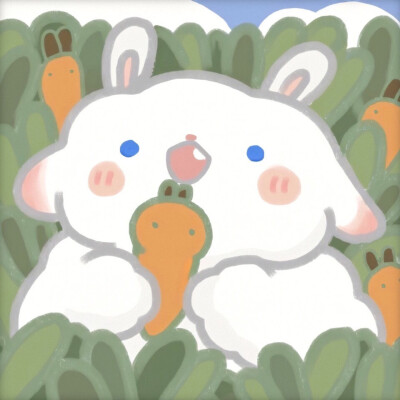 鬼谋
鬼谋「预习」外研社版小学英语(一年级起点)二年级下册Module 9
英文预习外研社版一起二下M9 课文与单词听力外研一起二下M9U1课文01:28来自七宝爸做启蒙点击上方绿标即可收听音频◆◆◆left [left] 向左 turn left 左转 right [rat] 向右 turn right 右转road [rd] 公路 excuse me 对不起,打扰 straight [stret] 直(线)地go straight on 直着走lost [lst] 迷路的 out [at] 出 factory [fktri] 工厂外研社版一起二下M9 学习视频09:26▲点上方视频即可学习本单元知识点◆◆◆本视频来源于网络,仅供学习参考
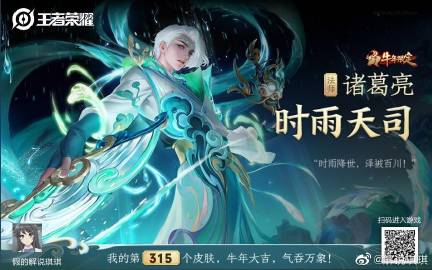 马纳图
马纳图外研版四年级英语下册全册知识总结,在家自学好帮手!给孩子收藏
小学英语学习最重要的基本功只有三个方面的内容,那就是语音、语法和单词。所有的听、说、读、写的训练全都是为了这三方面的熟练度而展开的活动。除了单词的发音正确,将单词组成句子,在具体的语境中的句子语调如何也是需要练习的重点。课前何时预习、预习什么、预习多少,哪些是单元的重点、难点,一定要做到心中有数,切不可眉毛胡子一把抓。各单元的学习都是从词汇入手的,可以说生词是英语课堂教学的主要障碍。对于课文,可以查阅相关资料,了解课文内容的背景知识。
 消防犬
消防犬「预习」外研社版小学英语(一年级起点)三年级下册Module 9
英文预习外研社版一起 三下M9 课文与单词听力外研一起三下M9U1课文01:49来自七宝爸做启蒙点击上方绿标即可收听音频◆◆◆were [w(r)] 是(are的过去式)young [j] 年轻的beautiful [bju:tfl] 漂亮的was [wz] 是(is的过去式)also [:ls] 也 then [en] 在那时 who [hu:] 谁grandparent [grnpernt] 祖父母 old [ld] 老的yesterday [jestde] 昨天 weren't=were not 不是wasn't=was not 不是fun [fn] 有趣的外研社版一起三下M9 学习视频06:34▲点上方视频即可学习本单元知识点◆◆◆本视频来源于网络,仅供学习参考
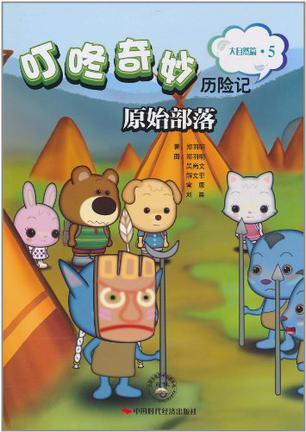 哑
哑外研版(三起)小学英语五年级下册知识点归纳总结
Mole 1一、音标ai —— [e] —— rain, main, waital —— [:] —— walk, talk, tallar —— [e] —— farmer, far, park, partyay —— [e] —— play, may, day, sayau —— [:] —— autumn, August, authorar —— [] —— warm, quarter, war二、单词still 还,仍然 programme (电视或广播)节目 lady 女士,夫人 life 生活 different 不同的 ago 以前 interviewer 采访者 enough 足够的 television 电视机 grandchildren (grandchild的复数形式)(外)孙子;(外)孙女 change 改变,变化 night 夜晚,夜间 work 工作;劳动;干活儿 field 田地 fire 火,炉火 or (用于否定句中)也不,也没 radio 收音机 telephone 电话 couldn't = could not 不能 write 写 hope 希望三、固定搭配live in 住在...... watch TV 看电视 a small village 一个小村庄 talk about 谈论 in the fields 在田地里 last night 昨天晚上 every day 每天 enough food 足够的食物 lots of 许多 a television programme 一个电视节目四、句子1. There are two beautiful cats on the chair. 有两只漂亮的小猫在椅子上。2. Life was very different in China many years ago. 在许多年前中国的生活对于现在有着很大的区别。3. We lived in a small house. We didn’t have enough food. There weren’t many buses. There weren’t any televisions. 我们住在小房子里。我们吃不饱。没有许多小汽车,也没有电视机。4. China is changing. 中国正在改变。5. He has got strong legs. He can jump really far. 他有强壮的腿,他能跳得很远。6. She didn’t have a television or a radio. 她没有电视机和收音机。五、句型结构① 描述某地从前有/没有某物There was / were (not) ...eg: There was a wide bridge over the lake. 湖上之前有座很宽的桥。There weren’t many tall buildings in the city. 城市里之前没有许多高大的建筑。② 描述某地现在有/没有某物There is / are (not) ...eg: There are many cars and tall buildings in the city. 城市里现在有许多小汽车和高楼。There aren’t many birds here. 这儿没有许多鸟了。③ 描述某人过去没有某物主语 + didn't have + 其他.eg: My mother didn’t have any grey hairs. 我妈妈以前没有白头发。My brother didn’t have a toy train. 我打到以前没有玩具小火车。Mole 2一、音标aw —— [:] —— paw, saw, draw, lawair —— [e] —— hair, pair, chairass —— [ɑs] —— class, pass二、单词learnt (learn的过去式)学习 taught (teach的过去式)教,讲授 language 语言 wrote (write的过去式)写 dancer 舞蹈演员 foreign 外国的 studied (study的过去式)学习 hard 努力地三、固定搭配foreign languages 外语 learn English 学习英语 study hard 努力学习 teach Chinese 教语文 四、句子1. — Did your grandma learn any foreign languages? 你奶奶学习一些外语了吗?— Yes, she learnt English. 是的,她学了英语。2. He’s learning English now. 他正在学英语。3. — Did she make a cake yesterday? 昨天她做了蛋糕吗?— No, she didn’t. 不,她没有。4. Twenty years ago, Mr Li was a teacher. He taught Chinese. 二十年前,李先生是一名老师。他教语文。5. Five years ago, he walked to school. Now he goes to school by school bus. 五年前,他步行去学校。现在他坐公共汽车上学。6. — What did he do? 他做了什么?— He drank some water. 他喝了一些水。五、句型结构① 描述某人做过某事主语 + 动词过去式 + 其他.eg: He played basketball. 他打了篮球。He sang songs last night. 他昨晚唱歌了。② 描述某人正在做某事主语 + is / am /are + 动词-ing + 其他.eg: I am listening to music. 我正在听音乐。She is cleaning the room. 她正在打扫房间。They are playing games. 他们正在玩游戏。③ 描述某人之前的工作,以及现在的状态主语 + was / were + 职业名称.Now 主语 + is / am / are + 职业名称. / Now 主语 + 动词原形(第三人称单数形式)+ 其他.eg: I was a student ten years ago. Now I am a teacher. 十年前我是一名学生。现在我是老师。Kate was a driver two years ago. Now she doesn’t drive a car. 卡特两年前是一名司机。现在她不开车了。Mole 3一、音标ea —— [i] —— teacher, meat, real, beatee —— [i] —— meet, see, bee, treeea —— [e] —— head, bread, readyear —— [] —— hear, hear, nearear —— [e] —— bear, pear, wearere —— [e] —— where, there, hereeir —— [e] —— their, heir(继承人)二、单词hamburger 汉堡包 English 英国(式)的 breakfast 早餐,早饭 lunch 午餐,午饭 sandwich 三明治 fish and chips 炸鱼加炸薯条 traditional 传统的 dish 食品;菜肴 very much 很,非常 gave (give的过去式)给 tonight 今夜,今晚 三、句子1. — What did she have? 她吃了什么?— She had eggs and sausages. 她吃了鸡蛋和香肠。2. — What did she have for lunch? 她午餐吃了什么?— She had sandwiches. 她吃了三明治。3. — Does Lingling like English food? 玲玲喜欢英式食物吗?— Yes, she does. She says it’s delicious. 是的,喜欢。她说食物很美味。4. Today Sam ate four hamburgers at school. 今天在学校山姆吃了四个汉堡包。5. Tonight Mum is going to cook Chinese food for us. 今晚妈妈将要为我们做中餐。四、句型结构① 询问某人三餐吃了什么— What did + 主语 + have for + breakfast / lunch / dinner?— 主语 + had + 食物名称.eg: — What did Jack have for breakfast? 杰克早餐吃了什么?— He had milk and bread. 他喝了牛奶,吃了面包。— What did you have for lunch? 你午餐吃了什么?— I had two apples and beef noodles. 我吃了两个苹果还有牛肉面。五、单词解析miss① 当首字母大写 Miss 一般用来称呼未婚女子eg: Miss Yang is my English teacher. 杨老师是我的英语老师。② miss 有“思念,想念”的意思eg: I miss you so much. 我好想你。③ 表示“错过”的意思eg: I missed the last bus. 我错过了末班车。Mole 4一、音标ie —— [a] —— pie, lie, dieigh —— [a] —— high, night, bright, lightir —— [] —— girl, bird, dirty, skirt二、单词library 图书馆 student 学生 sent (send的过去式)发送,寄 CD 激光唱片,光盘 idea 主意,想法put 放,安放 shelf 架子 heavy 重的,沉的 dictionary 词典;字典 card 卡片 library card 图书卡,借书证 ask 邀请 wrong 错误的 dear 哎呀 information 信息 e-book 电子书 project 项目 guide 介绍,指南,手册 film 电影 as well 又,还,也 way 方法,方式 on 关于 topic 话题三、固定搭配a home library 一个家庭图书馆 good idea 好主意 library card 图书卡,借书证 science project 科学项目 on this shelf 在这个架子上 get information 获取信息 on this topic 关于这个话题 四、句子1. Let’s make a home library. 我们做一个家庭图书馆吧。2. A friend sent these books and CDs to us. 一个朋友送了这些书和光盘给我们。3. These are all books about science. 这些书全是关于科学的。4. These are the library cards for our friends. 这是给朋友们的图书馆卡片。5. — Where are the books about sports? 关于体育的书在哪?— They are on the Shelf C. 他们在C架子上。6. The books on Shelf B are about computers. B架子上的书是关于计算机的。五、句型结构① 提出建议Let’s + 动词原形 + 其他.eg: Let’s go home. 我们回家吧。Let’s clean our room. 我们打扫房间吧。② 介绍某些物品的类别These are ... about ...eg: These are books about history. 这些书是关于历史的。These cards about words. 这些卡片是关于单词的。③ 某人能从某处得到信息主语 + can get information from...eg: We can get information from television. 我们能从电视上得到信息。We can get information from the internet. 我们能从网上获取信息。Mole 5一、音标oa —— [] —— coat, goat, boatoy —— [] —— toy, boy, joyoo —— [u] —— school, fool, cool, noonoo —— [] —— look, book, good二、单词light 轻的 hard 困难的,费力的 broken 坏的,破的 department store 百货商店 pocket 口袋,兜 umbrella 雨伞 sales assistant 售货员,营业员 wheel 轮子 easy 容易的,不费力的 take 选择要;选择购买 too 太,过于 try 试,尝试 lovely 美丽的,可爱的;令人愉快的三、句子1. This black bag is nice. It’s big! 这个黑色的包很好,很大!2. Look at this blue one. It’s big and light. 看这个蓝色的,又大又轻。3. It’s too big for you. 对你来讲太大了。4. It has got a panda on it. 在它上面有个熊猫。5. You can take it to China. 你能带它回中国。四、固定搭配too + 形容词 + for sb 对某人来讲太......eg: It’s too hard for me. 对我来说太难了。It’s too small for me. 对我来说太小了。五、句型结构描述某物特征This ... is + 描述物品的形容词.It’s + 描述物品的形容词.eg: This dress is long. 这条裙子是长的。It’s nice. 他是漂亮的。Mole 6一、音标or —— [] —— morning, for, horseoor —— [] —— door, floor, poorour —— [:] —— your, four, fourteenou —— [a] —— about, house, outow —— [a] —— cow, how, blow, town, brownour —— [] —— colourur —— [] —— surprise, Saturday二、单词moon 月亮,月球 get 到达 west 西,西部,西方;向西方 parent 母亲;父亲;家长 stay 停留 July 七月 south 南,南部,南方;向南方 remember 记得 June 六月 east 东,东部,东方,向东方 best 最好的 north 北,北部,北方;向北方 rest 休息 have a rest 休息一下 rode (ride的过去式)骑 三、固定搭配get there到达那里 every year每年 ride a horse骑马 have a lovely time玩得很开心 some interesting photos一些有趣的照片 in the west / south of China在中国的西/南部四、句子1. — Where did you go for the holidays? 你假期去了哪儿?— I went to the moon. 我去了月球。2. Lingling has got some interesting photos. 玲玲有一些有趣的照片。3. Xinjiang is in the west of China. 新疆在中国的西部。4. Hainan is in the south of China. 海南在中国的南部。5. — Did you go with your parents?你和你父母一起去的吗?— Yes, I did. 是的。6. She visited the Tianchi Lake. It was very beautiful. 她参观了天池湖,天池湖非常漂亮。7. I went to Hainan in July and I bought a hat. 我七月去了海南,还买了一顶帽子。五、句型结构① 描述自己曾经去过某地I want to + 地点 + 过去的时间.eg: I went to Beijing last year. 去年我去了北京。② 描述某地位于中国的东/南/西/北方向。地点 + is in the east / south / west / north + of China.eg: Jilin is in the north of China. 吉林在中国的北部。Shanghai is the south of the China. 上海在中国的南部。Mole 7一、音标ch —— [t] —— children, child, churchtch —— [t] —— watch, kitchen, catchck —— [k] —— black, clock, chick, back二、单词evening 傍晚,晚上 late 近日暮的;近深夜的;时间不早的 worker 工人 factory 制造厂;工厂 early 早的 taxi 出租车,计程车 quarter 一刻钟 to (距整点)差...... worry 焦虑,担心 三、固定搭配go to work 去上班 be late 迟到 be home 到家 四、句子1. My father goes to work at eight o’clock every morning. 我爸爸每天早上八点去上班。2. — Will you take us to the park tomorrow morning? 你明天早上会带我们去公园吗?— Yes. I’ll take you there at half past seven. 是的。我在七点半的时候会带你到那。3. — What does he do? 他是做什么的?— He’s a policeman. 他是一名警察。4. My father goes to work at six o’clock every morning. He’s a worker in a factory. 我爸爸每天早上六点去上班。他是工厂的一名工人。5. It’s half past eight now. I’m late and I’m tired. 现在八点半了。我要迟到了。我好累啊。6. — What times does you mum get up? 你妈妈什么时候起床?— She gets up at seven o’clock. 她七点起床。五、句型结构① 描述某人几点去上班/学主语 + go / goes to work / school at + 时间.eg: I go to school at eight o’clock. 我八点去上学。My father goes to work at seven o’clock. 我爸爸七点去上班。② 描述自己何时将会到家。I’ll be home at + 时间.eg: I’ll be home at five o’clock. 我将会在五点到家。Mole 8一、音标ll —— [l] —— tell, will, illng —— [] —— along, sing, thingng —— [ɡ] —— English, angry, languagenk —— [k] —— think, drink, thank二、单词paper 纸 Chinese 中国人的 so 如此,这样 word 词,字 drew (draw的过去式)画 cut (cut的过去式)剪,切,割 piece 张,片,块 paint (用颜料)绘画,着色 put (put的过去式)放,安放 stick 小木棍,小木条 tied (tie的过去式)扎上,系上 string 线,绳子三、固定搭配a toy panda 一只玩具熊猫 a Chinese dragon 一条中国龙 a great present 一份很棒的礼物 a piece of yellow paper 一张黄色的纸 visit my cousin 拜访我的表哥 make a kite 制作风筝 draw a dragon 画一条龙 cut the paper 剪这张纸 fly my kite 放我的风筝四、句子1. Tomorrow is my cat’s birthday. 明天是我的猫的生日。2. I’ll make a paper fish for her. 我将会做一条纸做的鱼给她。3. I’m going to visit my cousin in New York. 我将要去拜访在纽约的表哥去。4. — Will you help me? 你会帮我吗?— Of course I will. 当然会了。5. I made a kite. 我做了一个风筝。6. I drew a dragon on a piece of yellow paper. 我在一张黄纸上画了一条龙。7. — What will you do tomorrow? 你明天将要去干什么?— I’ll go swimming tomorrow. 我明天将要去游泳。五、句型结构① 描述某人将要做某事主语 + will + 动词原形 + 其他.eg:I will buy a pink dress for my sister. 我将要去买一条粉色的连衣裙给我妹妹。I will go to school by bus. 我将要坐公共汽车去上学。② 询问对方是否将要做某事— Will you + 动词原形 + 其他?— Yes, I will. / No, I won’t.eg:— Will you go to the zoo tomorrow? 你明天将要去动物园吗?— Yes, I will. 是的,我要去。— Will you sweep the floor? 你将要去扫地吗?— No, I won’t. 不,我不去。Mole 9一、音标qu —— [kw] —— queen, quite, quietsh —— [] —— shine, she, shipth —— [] —— this, that, theseth —— [θ] —— tooth, think, thing二、单词laugh 笑 wore (wear的过去式)穿 letter 信,书信 theatre 剧院 women (woman的复数形式)女性,妇女 actor 演员 told (tell的过去式)口述,讲(故事等) joke 笑话 after 在......后 show (尤指剧院的)演出,表演 restaurant 饭店,餐馆 ready 准备好的 borrow 借入,借来 read (read的过去式)读 at all 一点都 in 在(将来一段时间)之后 another 另一个 history 历史 ask 问,询问 question 问题 forget 忘,忘记 bring 带来,拿来 soon 不久,很快 三、固定搭配play football 踢足球 tell jokes 讲笑话 laugh a lot 开怀大笑 read a book 读书 be ready for 为......做好准备 borrow a bike 借一辆自行车 a children’s theatre 一家儿童剧院 Chinese history 中国历史 Chinese songs 中国歌曲 last week 上周 after the show 演出之后 四、句子1. Tomorrow is my cat’s birthday. 明天是我的猫的生日。2. I’ll make a paper fish for her. 我将会做一条纸做的鱼给她。3. I’m going to visit my cousin in New York. 我将要去拜访在纽约的表哥去。4. — Will you help me? 你会帮我吗?— Of course I will. 当然会了。5. I made a kite. 我做了一个风筝。6. I drew a dragon on a piece of yellow paper. 我在一张黄纸上画了一条龙。7. — What will you do tomorrow? 你明天将要去干什么?— I’ll go swimming tomorrow. 我明天将要去游泳。五、固定搭配为某人买了某物:bought sth for sbeg: I bought some candies for my brother. 我为我弟弟买了点糖果。My mother bought an interesting book for me. 我妈妈给我买了一本有趣的书。Mole 10一、音标wh —— [h] —— who, whosewh —— [w] —— when, what, wherewr —— [r] —— write, wrong二、单词when 在什么时候 end 结束,终止 nervous 紧张的,情绪不安的 all right 没事,没问题 airport 机场 ticket 票 passport 护照 safe 安全的,平安的 pet 宠物 speak 说,讲 building 建筑物 American 美国的;美国人的;美国人 find out 发现,弄清 more 更多的(量),较多的(量) 三、固定搭配be ready for 为......做好准备 feel nervous 感觉很紧张 make a list 列一张清单 try American food 尝尝美国食物 all right 没事,没问题 tall buildings 高大的建筑物 at the airport 在机场 四、句子1. That’s a good idea. 那是一个好主意。2. Safe trip! (祝你)旅途安全!3. I think so. 我认为是这样。4. I’m in New York now. 我现在在纽约。5. — Where are you going? 你要去哪?— I’m going to the airport. 我要去机场。6. — When are you going to the airport? 你什么时候去机场?— At seven o’clock tomorrow morning. 明早七点。7. — What are you going to take? 你打算带点什么?— Clothes, shoes, presents, the ticket and my passport. 衣服,鞋子,礼物,机票还有护照。五、句型结构① 询问对方将要去哪里— Where are you going + 其他?— I’m going to + 地点.eg: — Where are you going tomorrow? 你明天要去哪?— I’m going to the zoo. 我要去动物园。② 询问对方将要在什么时候去某地— When are you going to + 其他?— I’m going to + 地点 + at + 时间.eg: — When are you going to the hospital? 你明天什么时候去医院?— I’m going to the hospital at nine o’clock. 我九点去医院。③ 描述某人现在在某个城市主语 + be动词 + in + 地点 + now.eg: I am in Xi’an now. 我现在在西安。He is in Guangzhou now. 他现在在广州。They are in New York now. 他们现在在纽约。
 骷髅曰死
骷髅曰死英语三年级下册(外研版)Module 1 朗读+图文讲解
关注“齐鲁校园在线” 关注山东教育le 1《Unit 1 It's the ABC song》《Unit 2 My favourite colour is yellow》微课精讲+朗读习题_课文翻译_Unit1 It’s the ABC song. 字母歌Activity1 Listen, point and say. 活动1 听录音,指一指并说一说。Thank you to my school. 感谢的学校!Thank you to my teachers! 感谢我的老师!Thank you to School TV! 感谢学校电视台!Activity2 Listen, point and find "a, b, c..." 活动2 听,指出与发现"a, b, c..."What's your favourite song, Ms Smart? 你最喜欢的歌是什么,斯玛特女士?It's the ABC song. 是字母歌。A B C D E F G H I J K L M N O P Q R S T U V W X Y ZActivity3 Listen and say. Then sing. 活动3 听与说。然后唱。THE ABC SONG 字母歌A B C D E F G H I J K L M N O P Q R S T U V W X Y ZUnit2 My favourite colour is yellow. 我最喜欢的颜色是黄色。1. Listen, point and say. 听一听,指一指,说一说。What's that? 那是什么?It's my leg. 它是我的腿。What colour? 什么颜色的?Oh, it's red! 哦,它是红色的!2. Listen and say. 听一听,说一说。Lingling: What's your favourite colour?玲玲:你最喜欢的颜色是什么?Sam: My favourite colour is yellow.萨姆:我最喜欢的颜色是黄色。Lingling: Here you are. 玲玲:给你。Sam: Thank you. 萨姆:谢谢你。_单词表_Mole 1 Word List 单词表song 歌曲TV 电视台favourite 最喜欢的colour 颜色Here you are. 给你_微课视频精讲_第二节课时40:00第三节课时30:00_电子课本_教育是个美好的过程有我你不寂寞 _知识点汇总_第1模块知识点汇总(供课前预习课后复习)一、词汇song 歌曲 TV 电视台 favourite 最喜欢的 colour 颜色 二、句子1. Here you are. 给你。2. — What’s your favourite song? 你最喜欢的歌曲是什么?— It’s ABC song. 是字母歌。3. — What’s that? 那是什么?— It’s my leg. 是我的腿。4. — What colour? 什么颜色?— It’s red. 红色的。三、句型结构① 询问最喜欢的歌曲— What’s your favourite song?— It’s ...eg: — What’s your favourite song?(你最喜欢的歌曲是什么?)— It’s Twinkle Twinkle Little Star. (是小星星。)② 询问你最喜欢的颜色— What’s your favourite colour? (你最喜欢的颜色是什么?)— It’s + 颜色词.eg: — What’s your favourite colour? (你最喜欢的颜色是什么?)— It’s green. (是绿色。)③ 询问那是什么— What’s that?— It’s ...eg: — What’s that? (那是什么?)— It’s my book. (是我的书。)_巩固练习_一、选出每组单词中不同类的一项。(10分)() 1. A. colourB. redC. black() 2. A. whatB. whereC. school() 3. A. thisB. thatC. what() 4. A. IB. myC. you() 5. A. songB. book C. sing二、根据图片选择合适的单词完成句子。(12分)() 1. It's an English ________.A. songB. book() 2. Thank you to my ________.A. teacher B. school() 3. —What's this? —It's my ________. A. legB. hand() 4. This is my ________.A. classroomB. school三、单项选择。(15分)() 1. —What colour is it?—It's ________.A. songB. pandaC. yellow() 2. —Here you are!—________.A. Thank to B. Thank you C. Thank for() 3. Thank you ________ my mother.A. toB. in C. too() 4. —What's your favourite song?—It's ________.A. yellowB. the ABC songC. a bird() 5. —What's this?—It's________.A. a pandaB. greenC. black四线、选择合适的答语并连线。(15分)1. What's this? A. I'm fine.2. Here you are! B. It's the ABC song.3. What's your favourite song?C. Thank you.4. What colour is it?D. It's my leg.5. How are you?E. It's black.五、连词成句(只填序号)。(8分)1. ①you ②are ③ Here________________________________________________________2. ①my ②It's ③leg________________________________________________________3. ①colour ②is ③What ④it________________________________________________________?4. ①Thank ②my ③teachers ④ you ⑤to__________________________________________________________答案:一、ACCBC 二、AABB 三、CBABA 四、 DCBEA 五、 1. Here you are ! 2.It's my leg. 3.What colour is it? 4.Thank you to my teachers!来源于网络◆ ◆ ◆ ◆ ◆
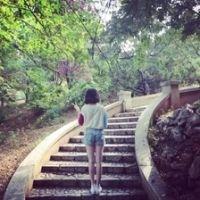 熙熙攘攘
熙熙攘攘空中课堂笔记及课后一练,北京版小学英语,二年级下册-Unit 4
课堂笔记及课后一练Unit 4本单元知识点:教学目标:通过本节课的学习,学生能够:1. 从音、义、形三个方面,复习、巩固和运用前三单元有关时间、日常活动、一日三餐、家居用品等词汇。时间表达: time, clock, twenty, thirty, forty, fifty, …饮品类单词: meat, vegetables, fish, an orange, apple juice, hot dog, rice, fruits, …家居类单词: house, room, phone, table, glass, toothpaste, towel, soap, bed, …描述日常活动的动词短语:get up, go home, come to my room, ride my bike, play with my toys, read books, …参与游戏互动,运用所学词汇及词组。根据话题,归类复习,巩固前三个单元的重点词汇。教学重点:复现和巩固前三单元有关时间、日常活动、一日三餐、家居用品等词汇。教学难点:按照词意,分类所学词汇和词组。课堂笔记Unit 4-lesson 13课后一练Unit 4-lesson 13【课后一练答案】课堂笔记Unit 4-lesson 14课后一练Unit 4-lesson 14【课后一练答案】课堂笔记Unit 4-lesson 15课后一练Unit 4-lesson 15【课后一练答案】课堂笔记Unit 4-lesson 16课后一练Unit 4-lesson 16【课后一练答案】
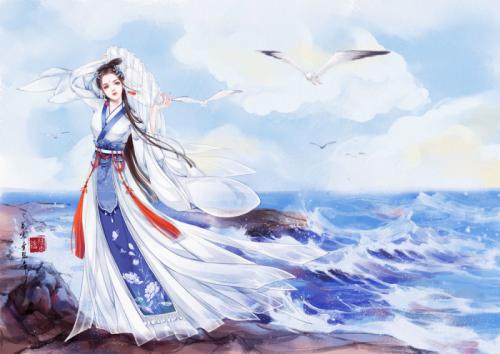 樱花
樱花小学英语(新起点)重难点解析:二年级下Unit1
Unit 1单词练习Unit1_words00:35来自师师学霸课堂play football 踢足球fly a kite放风筝ride a bike骑自行车make a model plane 做飞机模型swim 游泳make a snowman 堆雪人can’t不能、不会Unit1 课文& Story time跟读02:52Unit1 重点内容----Can you play football?play baseball 打棒球play basketball 打篮球jump 跳run 跑hop 单脚跳sing 唱歌dance 跳舞-----Can you swim?-----Yes,I can.No,I can’t.-----Do you like sing?-----Yes,I do.No,I don’t.Unit1 课后习题一、单项选择1. - ______you play football?- Yes, I can.A. Can B. Do 2. Can you ride ______a bike?A. a B. an3. I can ______a kite.A. play B. fly4. – Can you swim?- No, I ______ .A. can B. can’t二、根据汉语提示完成句子1. I often fly a ________(风筝) after school.2. Mary can ________(唱歌)and ________(跳舞).3. Bill likes make a ______________(飞机模型).三、回答下列问题。1. ---Can you fly a kite?---No, _______________________2. --- Do you want to play basketball?---Yes, _______________________四、翻译下列句子。1.I can swim._______________________2.I can fly a kite.___________________3.I can drive a car.____________________4.I can make a model plane._______________5. ----你会堆雪人吗?_________________----是的,我会。____________答案一、A、A、B、B二、kite sing dance model plane三、I can’t.I do.四、1.我会游泳。2.我会放风筝。3.我会开车。4.我会做飞机模型。5.你会堆雪人吗?是的,我会。

 40004-98986
40004-98986



